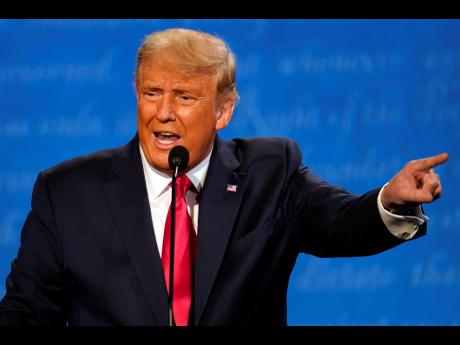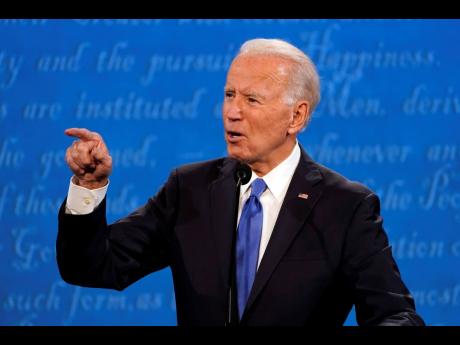Elizabeth Morgan | Trade and environment: A change gotta come - Supporting efforts to implement the UN SDGs, promoting a green post-COVID recovery
I watched the US presidential debate last Thursday evening and took particular note of the responses to the questions on the environment and climate change. Under President Donald Trump, the USA withdrew from the UN Framework Convention on Climate Change, doubting climate science, and has reduced regulations aimed at improving the environment, water and air quality, and protection of flora and fauna. President Trump wants to retain the use of fossil fuels with limited regulations and promising to maintain jobs in these industries.
Former Vice-President Joe Biden spoke to returning the USA to the Climate Change Convention, collaborating with other countries to reduce carbon emissions by 2050, transitioning to cleaner, renewable fuels, and prioritising the protection of the environment. For Biden, new jobs would be created by promoting sustainable development.
Some commentators felt that Mr Biden was too candid in pointing out that the USA would have to reduce, and eventually phase out, fossil fuels in order to stabilise or reverse climate change. With this statement, they felt that he risked votes in states where fossil fuels are key contributors to the economy. Some studies, it is reported, are showing that more Americans are aware of the impact of climate change and favour protecting the environment. That is gratifying to hear.
I am convinced that climate change is a reality. In the last 150 years, the rapid expansion of production, trade and consumption has placed great pressure on the world‘s resources, which we now know are not infinite. Production, transportation and deforestation have consistently released unusually high levels of carbon dioxide into the atmosphere increasing temperatures. Here in the Caribbean, days are getting warmer, rainfall cycles are more erratic, and droughts are longer, with increasing wildfire incidents in some countries. Hurricanes are more numerous and intense. Zeta, named from the Greek alphabet, is now the 27th named storm for this hurricane season. This could be a record-breaking year. There is also concern about sea level rise and the appearance of unusually large quantities of sargassum seaweed on beaches, among other things.
Nature’s response to the COVID-19 lockdown has demonstrated that the planet needs relief from the relentless pollution and abuse. I addressed this in my article of April 29 titled ‘A cleaner environment under COVID-19’.
In every country, there is the need to recognise that adjustments have to be made to promote sustainable development in our own interest. Countries in the Caribbean produce or have identified sources of fossil fuels, oil and natural gas, in varying amounts. These are Trinidad and Tobago, Barbados, Belize, Guyana, Suriname and Grenada. Others would welcome some discoveries. While there is the hope that benefits will accrue to the countries and the region post-COVID, it is recognised that developing and producing clean, renewable energy has to be a priority also. The lifespan of fossil fuels is limited.
EVERYBODY IS IMPACTED
To implement the UN Sustainable Development Goals (UN SDGs) requires the cooperation of all the world’s countries, and on climate change, the participation of the globe’s principal industrial polluters is essential. Environmental degradation does not only affect one country and not others. Everybody is impacted.
The World Trade Organization (WTO), which has a Committee on Trade and the Environment, has a new publication titled Short Answers to Big Questions on the WTO and the Environment. It is making the point that protecting the environment and global trade are not in conflict. They can be supportive. The WTO is also highlighting its cooperation with other multilateral institutions in implementing UN SDG Goal 17 to revitalise global partnerships for promoting sustainable development.
The United Nations Environment Programme (UNEP), assessing the impact of COVID-19, is calling for the focus on a green recovery. For UNEP, trade measures could support a green economic recovery. These trade measures could include reducing obstacles to environmental goods and technology and supporting sustainable food systems. In the long term, they also recognise that coordinated international cooperation is required to make the trade system a vehicle for sustainable development and building resilience.
So, whether or not countries produce or only use fossil fuels, it is quite clear that for sustainable development and human survival, to transform global economies, a change has gotta come. The sooner people face this reality, the less challenging it will be.
Elizabeth Morgan is a specialist in international trade policy and international politics. Email feedback to columns@gleanerjm.com.


